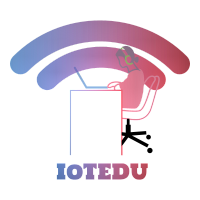smart office use cases
With our world-class, state-of-the-art IoT products and solutions, we can transform the business of any industry by improving their efficiency, reducing unnecessary costs, ensuring better customer service and a detailed track of the logistics involved.
Smart Office
A smart office is a technologically drives workplace that encourages its employees to work in a smart and efficient manner. Offices are integrated with automated systems that have eliminated menial tasks thereby boosting business.
Smart Environment
- Smart thermostats ensure a comfortable working environment by providing optimal indoor temperature.
- A significant amount of energy can be conserved by using automated window shades and smart lights. These alter the intensity of light, thereby improving energy efficiency.
- When the office closes for the day, the sensors will take notice of the absence of workers and shut down devices like computers and air conditioners.
Space management
- IoT can help designated personnel monitor the office space in real-time. a visual directory of the entire office can help them make decisions regarding employee count and space management.
- Improves air quality and noise while simultaneously promoting mental health.
- One can view the area through a mobile phone, laptop, or desktop.
Smart desks
- These ergonomic desks remind the user to take regular breaks and maintain their posture.
- Sitting down for long periods of time can take a toll on the health and performance of an employee. Smart desks allow them to maintain, if not improve, their work by permitting them to stand up/move around and work.
- The booking system can help employees find a vacant desk to work at.
Smart conference room
- Meeting rooms can now be booked with a single touch using your smartphones or tabs. This prevents the chances of double booking.
- One can receive messages on the sudden availability or cancellation of a room.
- Digital employee IDs can be used to keep a track of who’s using the meeting room, when and for how long.
Intelligent canteens
- Equipment like fridges and ovens provide real-time information on temperature and other such data. Employees can also keep a track of the inventory through their mobile devices at any point in time.
- The self-monitoring systems can reliably track temperatures on the equipment, log entries for audit review, and alert operators when situations that can compromise food safety takes place.
- Reduces costs and CO2 emissions as diners can control the airconditioning or fans that are closest to them.
